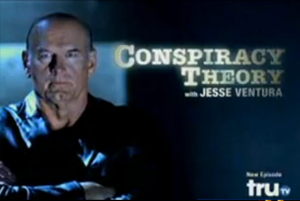Confirmation bias is a serious problem that everybody suffers from, and it takes conscious effort to avoid it. Whether it played a part in the infamous "Batmobile Debacle", is a bit questionable.
For those of you who have no idea what I am talking about, feel free to look up "Batmobile Debacle". But here's a summary of it, as simple as I can make it.
Mark Racop is a Batman fan, and he has obtained official license to make replicas of the 1966 Batmobile that appeared in the classic Batman TV series. His shop, Fiberglass Freaks, is in Indiana. And his shop is making several vehicles at a time, and the process takes many MONTHS.
Sam Anagnostou, a real estate agent who lives in Atherton, CA, wanted to buy one, in 2017.
But the cars are "built to order", and costs $210,000. You pay a certain amount by certain milestones, much like you'd pay a contractor who is fixing up your house.
So Sam paid $40K to start, then met several milestones. He was assigned production vehicle "29" which is a build-queue number, but it's not a vehicle. He paid $170,000 so far, with 40000 remaining. Next milestone was at "first primer" with $20000 due.
So "first primer" stage was reached in December 2019, and Sam is nowhere to be found... over several MONTHS. So Sam got bumped to the bottom of the queue. Sam eventually got back to Racop in August 2020, inquiring about the progress, and was told progress suspended due to nonpayment. Sam wired Racop 40000 a few days later, completing all payments.
In August 2021, Sam decided he was a victim of fraud, since he still had not received a car. So Sam reported "fraud" to his local Atherton Police. Atherton Police said this is a civil matter.
So Sam filed a civil suit in San Mateo county court. The judge threw it out, ruled that this suit should be filed in Indiana.
Sam then contacted the county sheriff directly, San Mateo County Sheriff Carlos Bolano. Who apparently told his "auto theft task force" commander, Michael Leishman, to look into it. Note that Sam did not go through the regular channels, i.e. call the main number. He went DIRECTLY to the sheriff. Is this inappropriate? We don't know.
Leishman, after studying the files given to him by Sam's investigator, somehow came to the conclusion the vehicle was "finished", and the vehicle was then sold to someone else, despite the 40000 final payment. He had somehow become aware of a payment by "Danny Glasser" who also paid for a Batmobile at the time and believed Sam's car was "delivered" to Glasser. All of this was done WITHOUT contacting Mark Racop or Fiberglass Freaks to understand the actual situation.
Leishman then coordinated with the Deputy District Attorney Marie McLaughlin to obtain the necessary paperwork, then spent the next six MONTHS getting warrants for email and financials he believed to be relevant to the case.
In July 2022, McLaughlin filed felony complaint in San Mateo alleging "obtaining money by false pretenses" and "diversion of construction funds", and warrants are issued, which authorized Leishman to go to Indiana, arrest Racop, freeze his business, recover the vehicle, and extradite him to California to face charges.
A few days later, Leishman, a sergeant, and 2 deputies boarded a flight for Indiana and coordinated with local law for a local warrant. They arrived at Fiberglass Freaks on July 24th. Mark Racop was NOT interviewed, and the lieutenant (at the time) Leishman will not allow Racop to speak with his own attorney. Racop was nervously trying to explain the situation. Leishman was searching for a "nearly completed car" and after searching the entire workshop concluded there was no such completed car. Despite this revelation, Racop was hauled down to the local police department ANYWAY. Only when Racop disclosed that he has a heart condition did Leishman relent and decided NOT to extradite him immediately, but told him he better go to California when the California court summons him. They returned to California the next day, and Leishman went on vacation a day later.
The case then blew up when the media gotten hold of it, mostly because it involved "the Batmobile!" When district attorney learned of the case, and conducted more investigation, they decided to drop the charges, unfreeze the bank account, and hired an independent investigator, an ex-judge, to look into the matter. The report has just been made public. The investigator let all parties knew about the investigation and participation is voluntary. Sam did NOT respond to inquiry, and MacLaughlin declined to participate.
Sorry for the long spiel, but it takes a bit of setup to explain the situation.
So why confirmation bias? I don't claim to be a mind reader, but I believe Leishman suffered a bit of confirmation bias. I recommend you read the investigator's summary of the interview she did with Leishman, starting on page 20. A couple points to note:
* ..."Leishman is the Commander of the Vehicle Theft and Recovery Task Force."
* "...Leishman believed the fraud occurred when (Sam) wired $40000 to Racop and the car built for (Sam) was sold to someone else."
* "... He (Leishman) thought he was pursuing a righteous case of fraud. "
It appears that Leishman suffered from confirmation bias. To explain it, I have to use a cliche:
"To a hammer, everything looked like a nail."
To an auto theft and recovery expert, a business dispute looked like auto fraud.
It doesn't help that he was relying on a very one-sided narrative... the alleged victim's narrative. It was clear that everything he did was looking for evidence to support the narrative, rather than gather all the evidence and see where it leads.
The fact that Leishman refused to talk directly with either Racop or Glasser before the trip to Indiana on the reasoning of "don't warn them" was further evidence of confirmation bias. He's thinking about police procedures. He's gathering evidence for the prosecution, NOT investigating (whether there is enough to prosecute).
I believe that is what happened, given the evidence available. I am well aware that I could be falling into the same trap: I want it to be confirmation bias, so I am looking for signs of confirmation bias.
Which is why I am now asking you, the readers.
Do you think this is confirmation bias? Did he simply ASSUME there's fraud, because he was TOLD there's fraud? And once he decided it's fraud, he didn't bother looking into anything else? Let me know in the comments.















